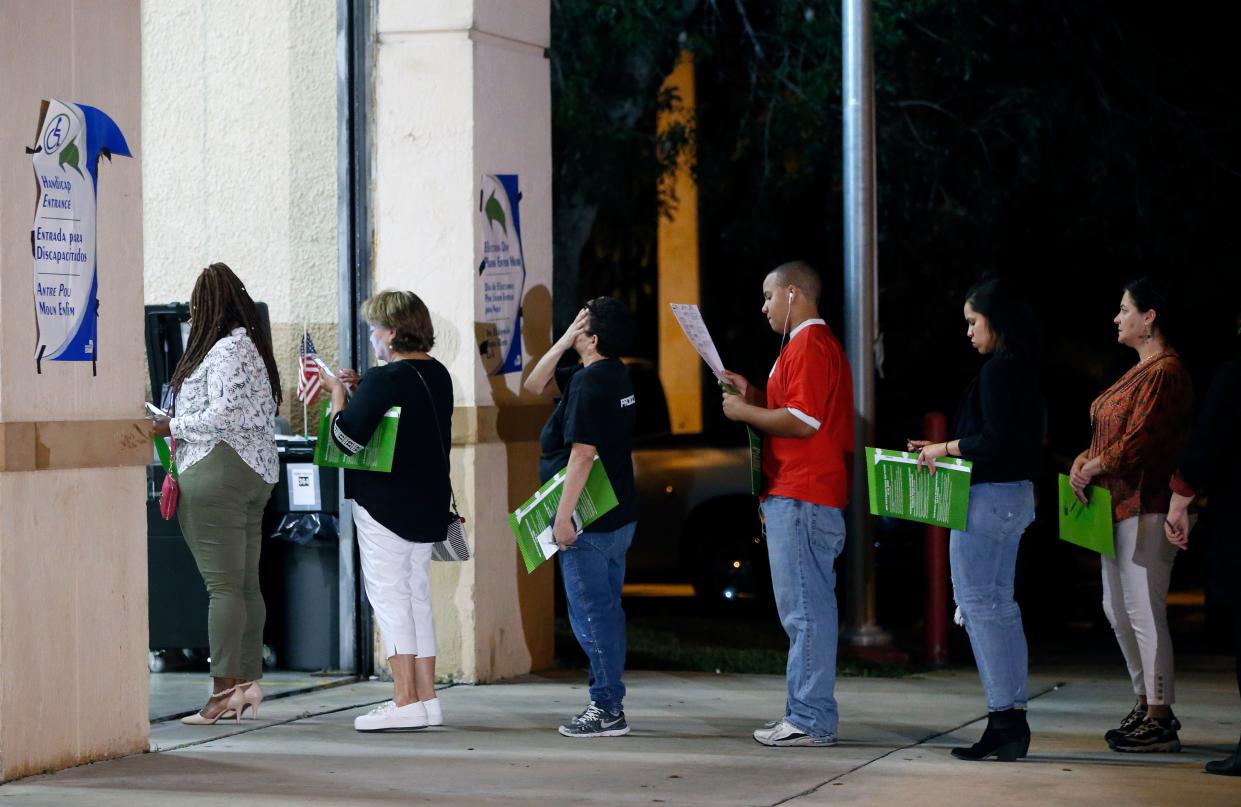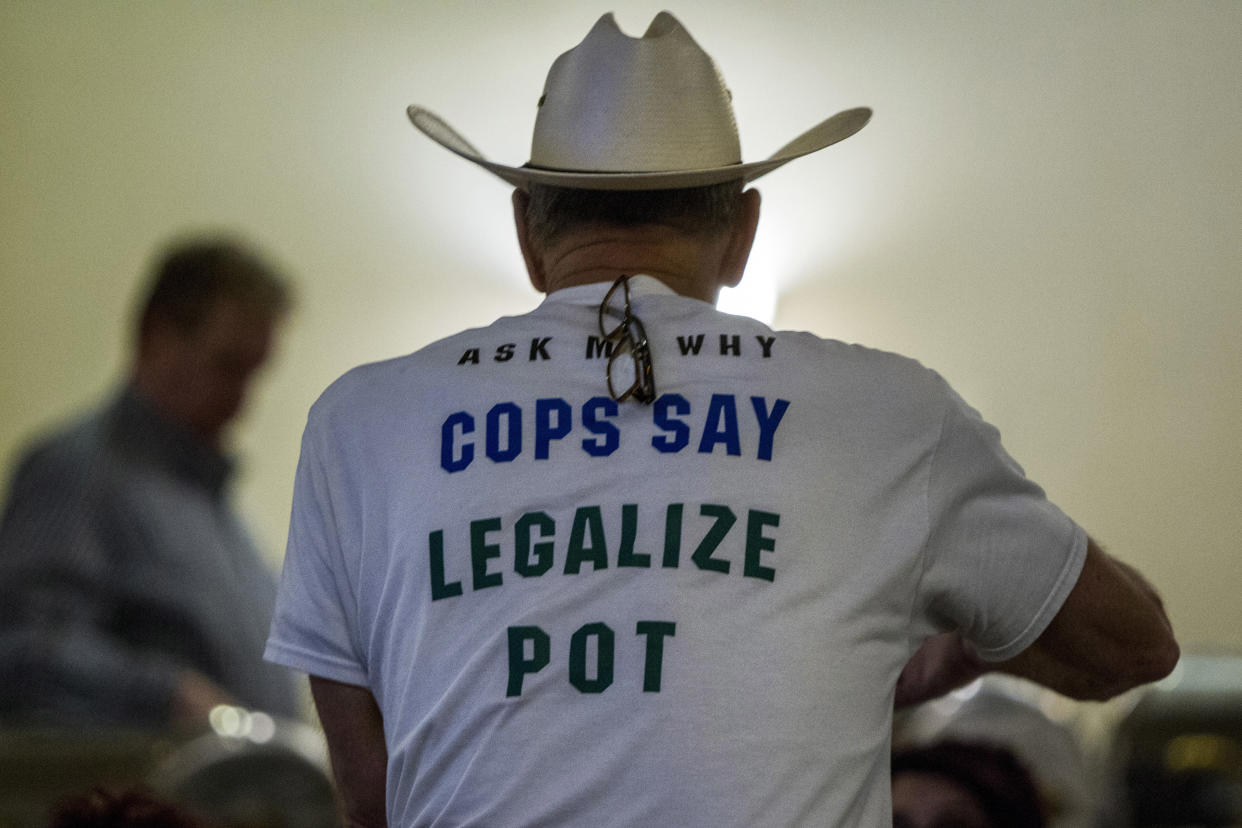Waiting to inhale: Ballot initiatives approved on pot, Medicaid, minimum wage and more

Even as Republicans won statewide races to expand their margin of control in the Senate, voters in traditionally conservative states — and some states where Democrats performed statewide, like Michigan — approved ballot initiatives that advanced a progressive agenda: raising the minimum wage, decriminalizing marijuana, expanding ballot access and increasing access to Medicaid. Other than marijuana — and unlike in some previous elections — there were relatively few hot-button social issues on the ballot. Two states, Alabama and West Virginia, passed anti-abortion measures, but one, Oregon, voted it down. A referendum on transgender rights passed in Massachusetts. But pocketbook and voting access issues predominated. Here are some of the significant changes:
Medicaid expansion

In four traditionally red states, voters had the option of expanding Medicaid to families with incomes up to 33 percent above the poverty line. A majority of states had already authorized the expansion available via the Affordable Care Act but some states with Republican governors and state legislatures had declined to do so.
Voters in Idaho, Utah and Nebraska approved initiatives to accept the federal subsidies, after sustained statewide efforts even to get the measures on the ballot. The change will bring affordable health care for around 300,000 in those three states. In Montana, a measure that would have kept that state’s Medicaid expansion from sunsetting next June fell short, the one loss. Montana’s initiative was tied to a tax increase on cigarettes that was opposed by the tobacco industry.
Marijuana

In Michigan, voters said yes to legalizing marijuana for recreational use, making it the first state in the Midwest to do so and the 10th overall. In Missouri and Utah, ballot initiatives passed allowing the use of medical marijuana, joining 31 other states. In Ohio, a number of local elections resulted in five cities decriminalizing the drug. In most of the states where weed has been decriminalized or legalized, it has happened via ballot initiative.
Voters in North Dakota went against the tide, rejecting by a margin of 18 points an initiative that would have legalized marijuana for recreational use. In Illinois, weed wasn’t on the ballot directly, but governor-elect J.B. Pritzker made legalization one of the central issues of his campaign.
Voting rights

In perhaps the most significant result of the night, Floridians approved Amendment Four, restoring voting rights to felons who have completed their sentences. The initiative, which required at least 60 percent to pass, was approved 64 to 35. It will affect 1.5 million convicted felons, including 10 percent of the voting-age population and nearly one in five African-Americans, changing the makeup of the electorate in a state where elections are often decided by fractions of a point (including the Senate and governor’s races this year).
In Maryland, an initiative for same-day voter registration won. In Nevada, voters passed automatic voter registration at the DMV. In Michigan, two-thirds of voters supported Proposal 3, which granted a number of voting right expansions, including both same-day and automatic voter registration.
“We’re grateful for the tremendous support that Proposal 3 received from voters across Michigan yesterday,” said Todd Cook, the campaign director of Michigan’s Promote the Vote campaign, in a statement to Yahoo News. “It sent a strong message that people are interested in reducing barriers to voting and ensuring that every voice is heard on Election Day rather than having certain voices silenced.”
In North Carolina, voters approved an amendment to require photo identification in order to vote. The legislature will now decide what form the required ID will take.
Redistricting
In Michigan, Colorado and Utah ballot initiatives were approved to establish independent commissions to draw legislative district boundaries, taking away the power of legislators to entrench one party — in recent years, mostly Republicans — in power. (Pennsylvania’s state supreme court threw out a map ruled to be a partisan gerrymander — with the result that Democrats gained three House seats in Tuesday’s midterms.)
In Michigan, an independent citizen-redistricting commission will redraw both the state legislative and congressional districts. Colorado passed two separate amendments resulting in commissions to draw their state and federal maps. In Missouri, the maps will now be drawn by a “non-partisan state demographer.” Missouri also passed ballot initiatives restructuring campaign finance and lobbying.
A measure to establish an independent commission to help draft new congressional and state legislative maps led by a few thousand votes in Utah as of Wednesday afternoon, but had not yet officially passed.
Minimum wage
In Arkansas and Missouri, initiatives to raise the minimum wage passed by overwhelming margins, each with over 60 percent of the vote. In Arkansas, Issue 5 will increase the minimum wage to $11 per hour by 2021. In Missouri, Proposition B will increase the minimum wage to $12 per hour by 2023.
Those wins, in states where Republicans won statewide races, represented a big victory for working Americans, according to Jonathan Schleifer, executive director of the Fairness Project, a progressive group that helps organize ballot initiatives.
“Voters across the political spectrum are fed up with politicians who pay lip service to the dignity of work but do nothing to reward struggling, hardworking families,” said Schleifer, after the elections. “When it comes to the minimum wage, the biggest gap isn’t between Republicans and Democrats; it’s between politicians who don’t want to raise the wage and the people they represent.”
_____
Read more from Yahoo News:
The CIA’s communications suffered a catastrophic compromise. It started in Iran.
Ending the Qatar blockade might be the price Saudi Arabia pays for Khashoggi’s murder
How Robert Mercer’s hedge fund profits from Trump’s hard-line immigration stance
Trump’s target audience for migrant caravan scare tactics: Women

